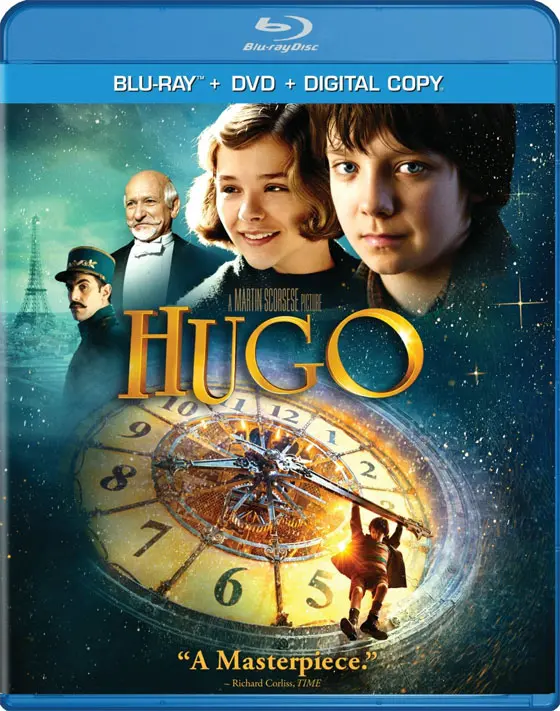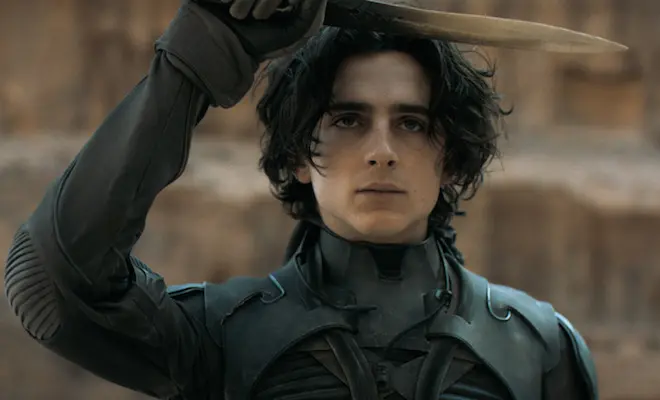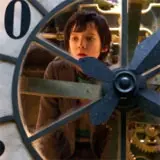 Over the last twenty or so years, there hasn’t been much tinkering done to the formula for making a successful children’s movie.
Over the last twenty or so years, there hasn’t been much tinkering done to the formula for making a successful children’s movie.
Hugo is a film that, likewise, doesn’t do anything particularly new or exciting, and yet it captivates nonetheless by virtue of the same intangible feature that makes all Martin Scorsese films reach a little beyond the expectations of the genres they represent: It simply does it better than most.
Like most children’s movies, Hugo is, ultimately, the story of self-discovery. It is the tale of how an inward journey can spread outward and touch lives. Again, these are themes and notions that can be found in just about any kid’s movie you could shake a stick at.
And yet it leaves a lasting impression in every way imaginable.
The film stars young Asa Butterfield as the titular character, Hugo Cabret, an orphan who dwells within the walls of a Paris train station in the 1930’s. He spends his days anonymously keeping the station’s clocks running, all the while trying to keep himself fed and evading Station Inspector Gustav (Sacha Baron Cohen).
Hugo’s last remnant of his father (played in a handful of flashbacks by Jude Law) is an automaton that they endeavored to repair together. Eventually, Hugo’s quest to keep his father’s memory alive leads him to Georges Melies (Ben Kingsley in his best performance in years) and his adopted daughter Isabelle (Chloe Grace Moretz, Kick-Ass).
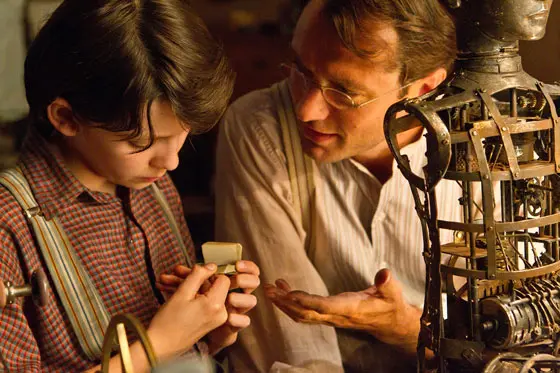
Consequently, Hugo finds a new meaning in his life as both he and Isabelle make it their mission to uncover the mysteries surrounding Georges – and in the end, their efforts illumine the darkest corners of their souls and offer hope and meaning to all the people they encounter.
It sounds cheesy. And it absolutely is.
But none of that means it isn’t good.
It’s been said that Martin Scorsese’s Oscar for The Departed a few years back was, in reality, an apology for decades of snubs in the Best Director category. I’ve never quite agreed with that statement inasmuch as it implies that Scorsese no longer has what it takes to turn out a great movie.
That argument suggests that one of the greatest living filmmakers in the world today is no longer on top of his game.
Hugo, I would argue, proves otherwise.
This is easily Scorsese’s best work dating back to the modern era of his career (for the sake of argument, let’s say that the current phase of Scorsese’s body of work begins with Gangs of New York) if for no other reason than it proves that the man really can direct anything. After all, this is the director of Raging Bull, Taxi Driver, and Goodfellas… directing a kid’s picture!
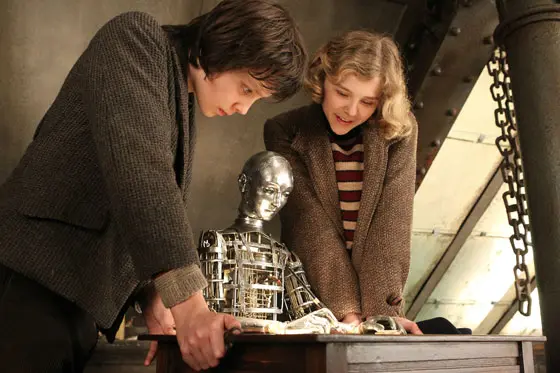
The script, written by John Logan (who, to be fair, has written some films that I flat-out hated) and based upon Brian Selznick’s novel The Invention of Hugo Cabret, is incredibly sharp and well-constructed. Every set-up is paid off, all the exposition is clean and delivered with a bare minimum of elaborate contrivances (all the while maintaining the film’s inherent charm and wit), and the more action-oriented set pieces enrich the story rather than distract (or worse yet – detract) from it.
I hesitate to refer to Asa Butterfield as a “child actor.” That phrase carries with it an inborn air of condescension and pandering. This kid is a bona fide actor. He gives a performance as Hugo that rivals the work of seasoned actors (including that of his own knighted co-star, Sir Ben Kingsley).
Butterfield conveys and consequently elicits a true sense of emotion. When he reaches the highest of highest, we experience it with him; and when he reaches his lowest point, we shed each tear by his side (literally in my case… quit laughing).
And as she did in Kick-Ass and Let Me In, Moretz delivers a performance that betrays her age. This girl is incredible, and teamed up with Butterfield, she forms the glue that holds the movie together.
There is nothing I can criticize about the look of the film, the sound of the film, or – to be frank – any aspect of the movie itself. Hugo is easily one of the most wonderful movies that I have seen in years – it may very well be among the five best films I’ve seen in the 21st century thus far.
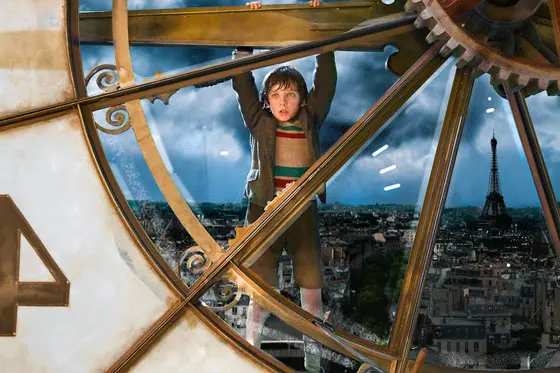
High-Def Presentation
Paramount brings Hugo to Blu-ray with an absolutely beautiful 1080p AVC-encode transfer, the praises of which I don’t even remotely feel qualified to sing. This movie looks positively stunning – I can’t vouch for how good it looked in the theater, as I didn’t make it out to see it, but I cannot in my wildest dreams imagine that it could have looked better than this Blu-ray transfer.
The colors are absolutely vibrant, and yet they maintain a balance that never overpowers the eye.
The most pleasant surprise of the visual treatment, however, is the fact that this might be the only Blu-ray of a film intended for 3D in which the 3D elements aren’t so glaringly obvious as to be an egregious distraction. The aspects of the film intended for 3D can be spotted, but they aren’t terribly distracting and, for the most part, blend seamlessly, with the rest of the movie while watched in 2D.
As for the audio treatment, this is one of the best-sounding Blu-rays I have encountered in quite some time. It is presented with a DTS-HD Master Audio 7.1 transfer that is breathtaking. The score by the eternally-underrated Howard Shore is treated well, all of the dialogue is remarkably clear and clean, and the sound effects are all balanced to near-perfection.
It might be only February, but I have a feeling that by the time December rolls around, I’ll still be considering Hugo to be one of the best audio-visual transfers to hit Blu-ray in 2012.
Beyond the Feature
Hugo comes with a variety of bonus features, the highlight of which is the mini-documentary, ‘The Cinemagician, Georges Melies’ (15:41), detailing the life and career the legendary filmmaker portrayed by Kingsley.
This feature is an absolute must-watch for anyone who’s even remotely interested in the history of cinema. Melies was instrumental in producing movies that were among the first crop of cinematic delights to make their audiences scratch their heads and ask, “How’d they do that?”
The man was literally a magician (indeed, his first career in show business was performing illusions on stage), and he discovered the means of transferring his greatest tricks into a camera.
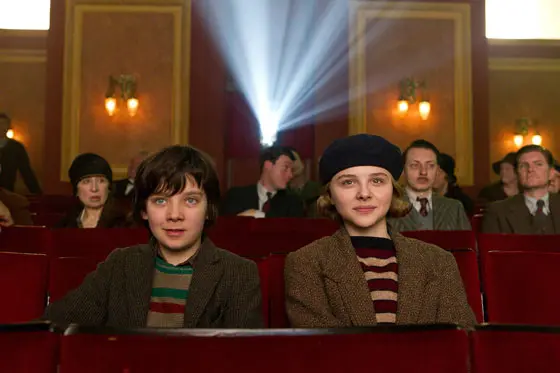
The rest of the features are pretty typical. Aside from the Melies featurette, there’s not much to write home about here.
- Shoot the Moon: The Making of Hugo (19:48)
- The Mechanical Man at the Heart of ‘Hugo’ (12:45)
- Big Effects, Small Scale (5:55)
- Sacha Baron Bohen: Role of a Lifetime (3:33)
All bonus features are presented in 1080p high definition.
The special feature documentaries tend to be too short (even the feature on Melies), and for a movie that’s received such critical praise and financial success, you’d think there’d be more detailed supplements.
Even without a wide array of special features, though, the movie itself is worth the price of the disc. This is a movie that absolutely needs to be a part of your collection.
I’ve always been hesitant to use the phrase “modern classic” (it’s a phrase that’s oxymoronic at best), but Hugo fits that term better than any film I’ve seen in recent years.
Shop for Hugo on Blu-ray and DVD combo for a discounted price at Amazon.com (February 28, 2012 release date).
